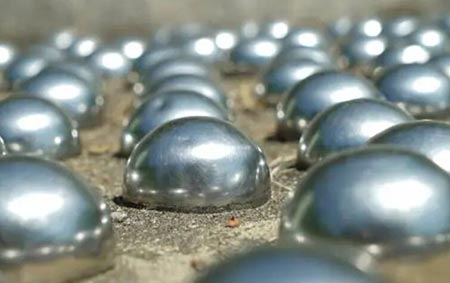Durability and Performance of Forged Steel Balls
Views: 503 Update Date:Sep 24 , 2024
Forged steel balls are precision-engineered spheres created through a meticulous forging process. Unlike their cast counterparts, these balls offer superior strength, density, and uniformity, making them ideal for a wide range of applications.
2. High impact resistance
3. Uniform composition
4. Improved wear resistance
5. Consistent performance under extreme conditions
- Mining and quarrying
- Automotive manufacturing
- Aerospace engineering
- Oil and gas exploration
- Size: Available in diameters ranging from a few millimeters to several inches
- Material composition: Different steel alloys offer varying properties
- Surface finish: Options include polished, chrome-plated, or as-forged
- Hardness: Measured on the Rockwell scale, typically between 60-65 HRC
2. Heating the steel to optimal forging temperature
3. Shaping through precision die-forging
4. Heat treatment for enhanced properties
5. Grinding and polishing for the perfect sphere
- Higher density and fewer internal defects
- Better resistance to fatigue and fracture
- More uniform microstructure
- Longer service life in demanding applications
- Regularly inspect for signs of wear or damage
- Keep them clean and free from debris
- Ensure proper lubrication in bearing applications
- Store in a dry, controlled environment when not in use
Environmental Considerations
In today's eco-conscious world, it's worth noting that forged steel balls are often more environmentally friendly than alternatives. Their durability means less frequent replacement, reducing waste and resource consumption over time.
Conclusion
When it comes to industrial components, cutting corners rarely pays off. Investing in high-quality forged steel balls can lead to improved performance, reduced downtime, and long-term cost savings for your operations.
Prev: The Importance of Forged Steel Ball Sizes
Next: Is Forged Steel Stronger than Steel?
Key Benefits of Forged Steel Balls:
1. Exceptional durability2. High impact resistance
3. Uniform composition
4. Improved wear resistance
5. Consistent performance under extreme conditions
Industries That Rely on Forged Steel Balls
The versatility of forged steel balls makes them indispensable in various sectors:- Mining and quarrying
- Automotive manufacturing
- Aerospace engineering
- Oil and gas exploration
- Heavy machinery

Choosing the Right Forged Steel Ball
When selecting forged steel balls for your application, consider these factors:- Size: Available in diameters ranging from a few millimeters to several inches
- Material composition: Different steel alloys offer varying properties
- Surface finish: Options include polished, chrome-plated, or as-forged
- Hardness: Measured on the Rockwell scale, typically between 60-65 HRC
The Forging Process
1. Selection of high-quality steel billets2. Heating the steel to optimal forging temperature
3. Shaping through precision die-forging
4. Heat treatment for enhanced properties
5. Grinding and polishing for the perfect sphere
Why Choose Forged Over Cast Steel Balls?
While cast steel balls have their place, forged steel balls offer several advantages:- Higher density and fewer internal defects
- Better resistance to fatigue and fracture
- More uniform microstructure
- Longer service life in demanding applications
Maintenance Tips for Forged Steel Balls
To maximize the lifespan of your forged steel balls:- Regularly inspect for signs of wear or damage
- Keep them clean and free from debris
- Ensure proper lubrication in bearing applications
- Store in a dry, controlled environment when not in use
Environmental Considerations
In today's eco-conscious world, it's worth noting that forged steel balls are often more environmentally friendly than alternatives. Their durability means less frequent replacement, reducing waste and resource consumption over time.
Conclusion
When it comes to industrial components, cutting corners rarely pays off. Investing in high-quality forged steel balls can lead to improved performance, reduced downtime, and long-term cost savings for your operations.





